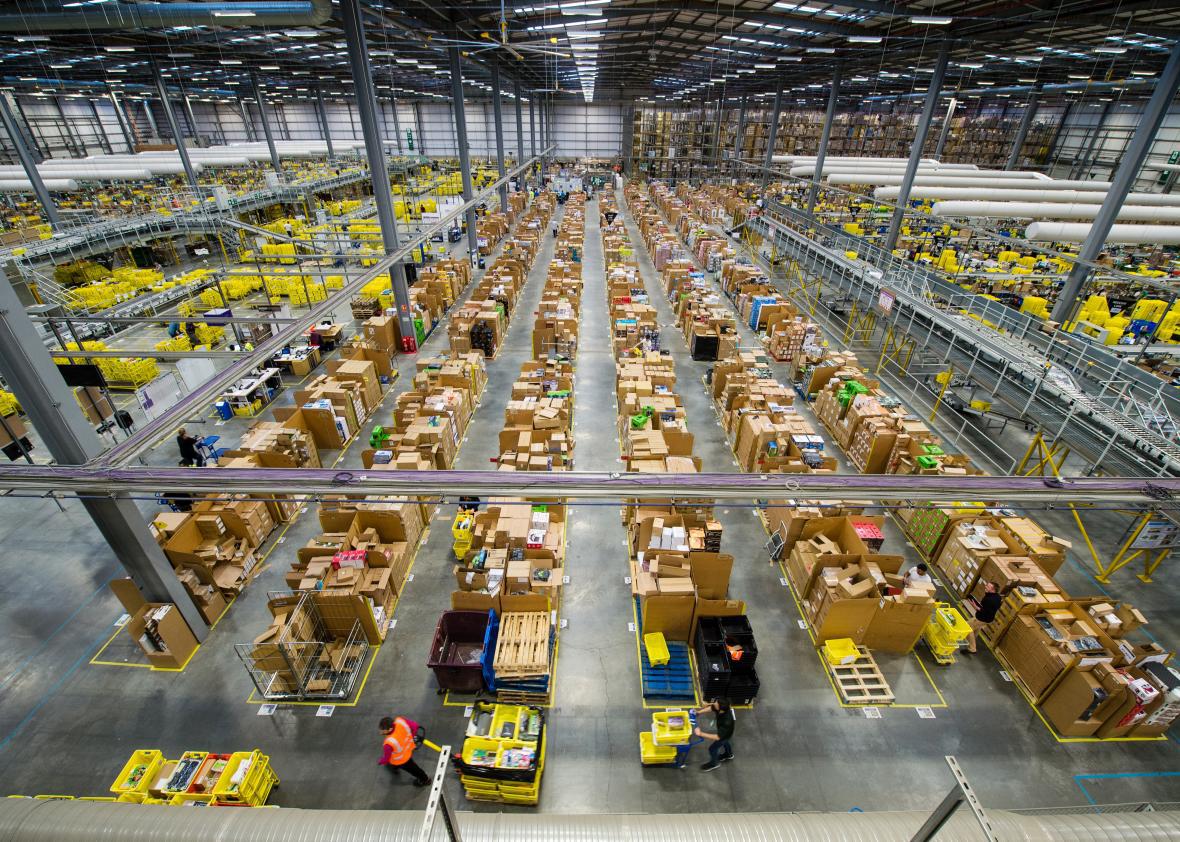This post originally appeared on Business Insider.
Amazon could be on the brink of diving into another enormous business opportunity. Earlier this week, The Seattle Times reported that the e-commerce giant is in talks to lease 20 cargo planes to build its own overnight-air-logistics operations.
The report was the latest in a series of hints that Amazon could be gearing up to create an in-house logistics department that would allow it to take full control of its fulfillment process.
Amazon would be able to sidestep carriers like UPS and FedEx to avoid the shipment delays that it has previously dealt with (most notably during the 2013 holiday season, when many customers didn’t receive orders in time for Christmas).
Analyst Colin Sebastian from Baird Equity Research writes that Amazon has “powerhouse potential” in the transportation and logistics market, and that it could be “Amazon’s next ‘AWS’ opportunity.”
Sebastian’s idea here is that Amazon could turn its in-house logistics network into a business in the same way that it grew Amazon Web Services, its insanely fast-growing (and profitable) cloud computing offering.
Amazon built AWS out of the infrastructure it had created to support its own operations, and now runs a business expected to pull in $8 billion in revenue this year. In the same vein, it could build a logistics network to clear up its own delivery bottlenecks, and then, eventually, offer services to other companies.
“Similar to the gradual roll-out of AWS, we would expect Amazon to introduce competitive transportation and logistics services to external clients on an incremental basis, with a long-term focus,” Sebastian writes. “Amazon may be the only company with the fulfillment/distribution sophistication and scale to compete effectively with incumbent service providers (UPS, FedEx).”
Sebastian pegs the global fulfillment market as a $400 billion to $450 billion incremental market opportunity.
“Given the price-sensitive nature of parcel delivery, we note that Amazon’s investor base, which has been historically tolerant of the company’s investment in high-volume, low-margin businesses, may offer a significant advantage over competitors due to the ‘profit mandates’ of traditional Transportation & Logistics shareholders,” Sebastian writes.
Yes, there are a lot of “ifs” here—Amazon hasn’t commented onthe Seattle Times report or reports from Vice or Re/code that it’s hurtling toward big logistics ambitions—but the potential effect would be enormous.
See also: More Than Half of Americans Will Do ‘Most’ of Their Holiday Shopping at Amazon
